How Can I Get Out of Jail? Understanding Your Legal Options in Philadelphia
If you've been charged with or convicted of a crime in Philadelphia, you may be wondering how you can get out of jail. Fortunately, there are legal options available to you, and understanding them can be the key to securing your freedom. In this blog post, we'll explore the various legal options that can help you get out of jail, and what motions you can file to improve your chances of success.
Understanding the Legal Options
If you have been arrested and are currently in jail, there are legal options available to you to help you get out. It's important to understand these legal options and how they work before deciding which one to pursue. Here are the most common legal options available to you:
Release on Bail:
One of the most common ways to get out of jail is through bail. Bail is an amount of money that you pay to the court as a guarantee that you will appear at your future court dates. If you show up as scheduled, the bail money is returned to you. However, if you fail to appear, the court keeps the bail money and a warrant may be issued for your arrest.
To request a release on bail, you or your attorney can file a Motion for Release on Bail. In this motion, you will request that the court set a reasonable bail amount based on your circumstances. This can include your criminal history, the nature of the charges against you, and your ties to the community. If the court grants your motion, you can pay the bail amount and be released from jail.
Release on Recognizance:
Another option to get out of jail is through recognizance. Recognizance is a promise that you make to the court to appear at future court dates, without having to pay bail.
To request a release on recognizance, you or your attorney can file a Motion for Release on Recognizance. In this motion, you will request that the court release you on your own recognizance. Again, the court will consider factors such as the nature of the charges against you, your criminal history, and your ties to the community. If the court grants your motion, you will be released from jail without having to pay bail.
Motion for Suppression of Evidence:
If there is evidence against you that was illegally obtained, you may be able to file a Motion for Suppression of Evidence. This motion requests that the court exclude the illegally obtained evidence from your trial.
To file a Motion for Suppression of Evidence, you or your attorney must demonstrate that the evidence was obtained in violation of your constitutional rights. This can include illegal searches and seizures, coerced confessions, or evidence obtained without a proper warrant. If the court grants your motion, the illegally obtained evidence cannot be used against you at trial. This can weaken the prosecution's case and increase your chances of a favorable outcome.
Motion for Speedy Trial:
If you've been in jail for an extended period of time without a trial, you may be able to file a Motion for Speedy Trial pursuant to Philadelphia Rules of Criminal Procedure 600(A) and 600(B). This motion requests that the court schedule your trial within a certain period of time, or release you on nominal bail while your awaiting trial.
To file a Motion for Speedy Trial, you or your attorney must demonstrate that you have been in jail for an unreasonable amount of time without a trial. The court will consider factors such as the complexity of your case and the availability of witnesses. If the court grants your motion, your trial must be scheduled within a certain period of time, typically 180 or 365 days depending on the charges.
Motion for Reduction of Charges:
Lastly, the Motion to Quash requests that the court reduce the charges against you. This can result in a lower sentence or even dismissal of the charges altogether.
To file a Motion to Quash, you or your attorney must demonstrate that the charges are unjustified or unsupported by the evidence. The court will consider factors such as the nature of the charges, the strength of the evidence against you, and your criminal history. If the court grants your motion, the charges against you may be reduced, which can result in a more favorable outcome for you.
How Szanto Law Can Increase Your Chances of Getting Out of Jail in Philadelphia
Understanding your legal options is key to getting out of jail. By filing the right motions and taking the appropriate legal steps, we can increase the chances of securing your freedom. However, it's important to remember that navigating the legal system can be complex and challenging, particularly if you're facing criminal charges. That's why it's essential to have an experienced criminal defense attorney on your side. We can help you understand your legal options and develop a strong defense strategy that is tailored to your unique situation.
If you or a loved one has been charged with a crime in Philadelphia, don't hesitate to contact Szanto Law. Jules Szanto has extensive experience helping clients navigate the legal system and secure their freedom. He can help you understand your legal options and fight for your rights throughout the legal process. Contact Szanto Law today to schedule a consultation.

